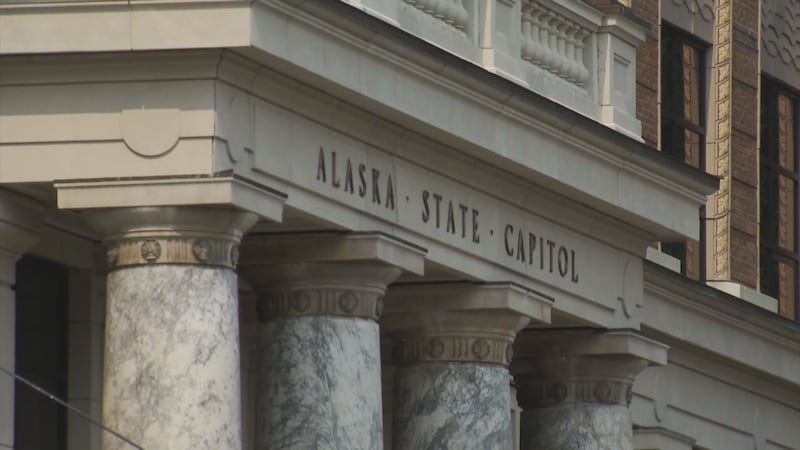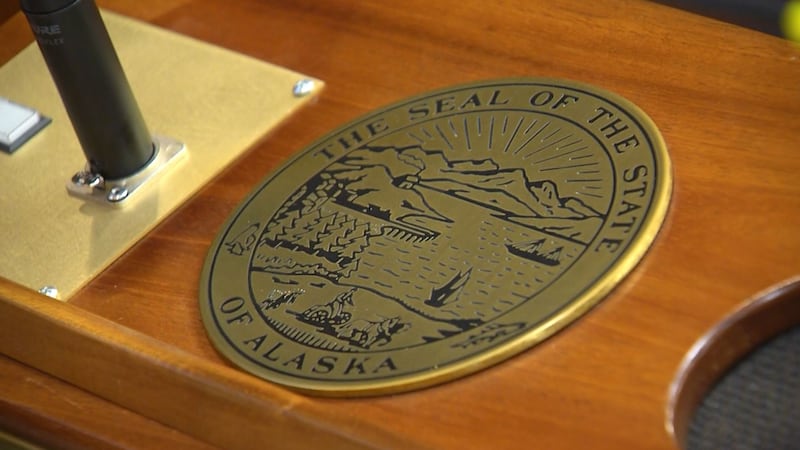House rejects Senate’s version of budget in concurrence vote as governor pens letters to lawmakers
Gov. Mike Dunleavy, who initially proposed a budget that included a $1.6B deficit, sent letters to legislative leadership expressing concern over fiscal future

ANCHORAGE, Alaska (KTUU) - The Senate’s version of the House budget, considered at length by lawmakers over the past several weeks, was rejected in a concurrence vote Friday afternoon.
The move sets up a conference committee to combine the Senate’s version of House Bill 53 with the House version that passed in April to get a finalized budget eventually sent to Gov. Mike Dunleavy.
The vote on HB 53 — with 27 lawmakers against concurrence and 11 in favor of it, with two representatives excused — followed the formal receipt of that bill as well as House Bill 55 by the House on Friday morning.
Together, the two bills comprise the capital and operating budgets, as well as the mental health budget. The House also rejected concurrence on HB 55 with a vote of 26 nays to 12 yays.
Adjusted versions of the operating budget, which saw extensive alterations in committees, had advanced to a third reading in the Senate earlier this week, setting up lawmakers for immediate debate over proposed amendments on Wednesday. The Senate then passed both bills that same day.
A day earlier, during a press conference held by Senate Majority members on Tuesday, lawmakers had said things were “on schedule,” and indicated that the overall budget the Senate would eventually pass “would be balanced.”
Indeed, the Senate’s version of the budget came in at about $1.5 billion less than Dunleavy’s initial budget proposal from several months ago, and — also unlike the House version — rejected tapping the state’s savings account, the Constitutional Budget Reserve, for ongoing operations.
The governor’s proposed budget, coming in at approximately $14.2 billion, included a $3,900 PFD for qualifying Alaskans; without a CBR draw, recent Department of Revenue forecasts place the deficit attached to that budget at more than $1.6 billion. The House version of HB 53 was sent to the Senate last month with a deficit of several hundred million dollars attached.
In the end, the Senate’s draft proposal that went back to the House included a small surplus, but lawmakers have repeatedly suggested that that could easily change, between federal government funding cuts, falling oil prices, increasing costs in other sectors and other factors, such as one-time funding that will no longer be available after this year.
Other key differences between the Senate and House versions of HB 53 include a $1,000 Permanent Fund dividend payment to qualifying Alaskans this year, rather than the House’s $1,400 PFD proposal; cuts to certain proposed increases, such as those for early education programs; and reductions in funding for state prisons, certain state offices, and maintenance-related endeavors, including road projects.
During comments ahead of the concurrence vote on HB 53 in the House on Friday, lawmakers expressed mixed feelings over the budget that was not only sent back to them, but the version sent to the Senate in the first place as well.
Rep. Mike Prax, R-North Pole, said he supported concurring with the Senate in this particular case.
“The reality is that we sent a wish list over to the other body,” he said in part. “Looking forward, I would hope that we can take our jobs in the budget subcommittees a little more seriously ... recognizing the real limits that are out there.”
Rep. Dan Saddler, R-Eagle River, also supported concurring with the Senate.
“It is a smaller budget, and it is more balanced,” he said. “It is not pleasant to not be able to increase the budget ... but our job as elected representatives and stewards of the state is not to be loved by everybody, it is to be responsible.”
Among those vehemently against concurrence was Rep. Andy Josephson, D-Anchorage, who said the Senate “eliminated virtually all” of the House’s additions to the budget.
Rep. Andi Story, D-Juneau, also spoke out against concurring with the Senate, saying certain cuts — such as those to services for the elderly — would be detrimental to communities across the state.
“What has to be funded here? What is essential?” she asked. “This budget needs to be looked at by both bodies being strategic.”
As of publishing time, Dunleavy had not reacted publicly to the news of the failed concurrence vote surrounding HB 53 or HB 55.
On Friday morning, however, just ahead of the vote, his office shared a copy of a letter that was sent by the governor to both House and Senate leadership this week. In that letter, Dunleavy expressed apparent concern over the fiscal future of the state in general, and requested that a joint committee be formed in efforts toward a “long-term, sustainable fiscal plan,” while also rejecting any standalone tax measures.
“While I too share the concern about how we will fund government in the future,” he wrote on May 7, “a ‘tax-and-spend’ approach will not yield a sustainable, long-term fiscal solution.
“As I have consistently stated since my first term,” he continued, “a truly durable fiscal plan must include revenues, but it also requires clear guardrails: spending limits, statutory and regulatory reviews, and policies that make Alaska the most competitive state in the nation for investment and new business growth.”
Earlier in the week, Dunleavy had also written directly to the co-chairs of the House and Senate Finance Committees, at that time sharing some of his concerns specific to falling oil prices and what that could mean for the state budget.
In that message, he also rescinded all of his budget requests that are beyond the FY 26 adjusted base, except for the disaster relief and fire suppression funds.
“We should only be focused on the most critical items to preserve our reduced cash flows and liquid reserves in this lower price environment,” he wrote in part. “It is unclear where changes in federal funds to Alaska and future oil prices may land with regard to our budget. This fiscal uncertainty compels us to make difficult decisions and separate our needs from our wants.”
Once there is agreement on a budget — which will be dealt with via a conference committee — the bill will be sent to Dunleavy’s desk. The governor can then veto individual line items as he deems fit.
The last day of the regular session is May 21, 2025. You can watch the full House floor session by heading over to Gavel Alaska.
See a spelling or grammatical error? Report it to web@ktuu.com
Copyright 2025 KTUU. All rights reserved.














